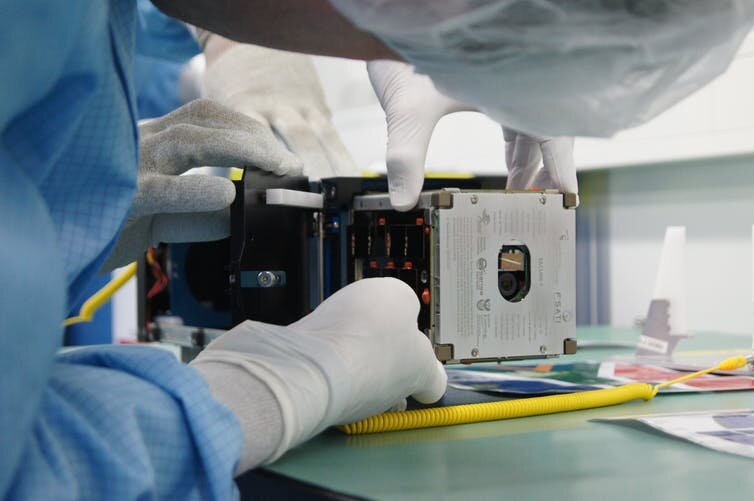Hardware Things: South Africa’s burgeoning space landscape
Hello, I’m David.
I’m a satellite technology and space industry analyst focused on the fast-growing African space industry. That involves fun things like keeping track of rocket launches (like this one by the DSI and the University of Kwazulu-Natal) and more rigorous work like writing industry reports.
In case you missed it, here’s last month’s newsletter.
First Things First
Two years ago, the African space industry was valued at $7.4billion and is projected to grow by 40% before 2024. Along with this growth comes an increased investment in space by governments across the continent and the emergence of a number of commercial space companies who are developing innovative technologies.
These companies are part of the New Space movement, and in South Africa, particularly Cape Town where most are located, they are driving the adoption of space technologies and services, while creating value in different market segments. It has been fascinating to notice these startups manufacturing satellites and associated components, developing space-based and ground software and equipment, and even offering services like geospatial analytics.
The hub of space activities in South Africa is the Western Cape; it hosts the facilities developed for the previous space programme, as well as a number of universities, government research laboratories and many high-tech companies. Interestingly, some of these companies have expanded to regions outside of Africa, while others have partnered with foreign companies.
Just recently, DragonFly Aerospace who produces optical payloads was acquired by Max Polyakov, Netloxh is finishing up their primary launch vehicles, while Astrofica is focused on assembly, integration and testing of satellite systems. The startups are only a handful of the manufacturers in Cape Town and have made significant contributions to the continent already.
In my recent feature for Hardware Things, I explore what has made Cape Town a hub for space manufacturing. Like many other startups on the continent, these companies also have their challenges. The most common to these companies is the lack of access to funding on the continent and African governments - who are the main space acquirers - preferring to work with companies outside the continent. Nonetheless, these companies have gone ahead to excel as global competitors.

Cape Town makes the world’s small satellites — Hardware Things
The coastal South African city houses satellite component manufacturers shipping parts across the world. How did they become dominant?
Things I Enjoyed Reading
Somalia may not be in the news a lot but they’ve made some noise in the space conversation recently, with a commitment of about $350 million from the Turkish government to build a spaceport in the East African country, where satellite launches can take place. Somalia is advantageous for its closeness to the equator, which makes it great for space launches due to near-equatorial orbit.
According to the new Digital Earth Africa initiative, satellite images and climate data from the continent presents a $2.3billion opportunity. Their recent report, in partnership with the World Economic Forum, sets out application areas particularly in unregulated mining.
As part of Egypt’s latest agreement to buy 30 new Rafale jets, the country will also be looking to acquire additional military equipment, including a FalconEye earth observation satellite and an A330 multi-role tanker transport (MRTT) aircraft, which will be manufactured by Airbus. This recent deal strengthens Paris’ strategic partnership with Cairo, as the country is one of France’s most important security and economic partners.
Interesting Things
EMSS Antennas produce cryogenically-cooled receiver systems. [South Africa]
HeHe is using remote sensing to allocate logistics resources. [Rwanda]
Originally a traditional telecoms company, TelNet is developing a constellation of nanosatellites. [Tunisia]
Company Spotlight
Still in South Africa, Hypernova Space Technologies is building a class of next-generation electric propulsion systems for small satellite manufacturers. The company’s first product line consists of plasma thrusters for micro and nanosatellite use. Eventually, the company aims to produce equipment for deep space exploration.
They also recently announced a shared Sat Service partnership with EnduroSat — a Bulgarian aerospace manufacturer. Hypernova is scheduled to join their December 2021 launch slot, which is a big step forward for the South African firm.
Have a good month,
David Oni